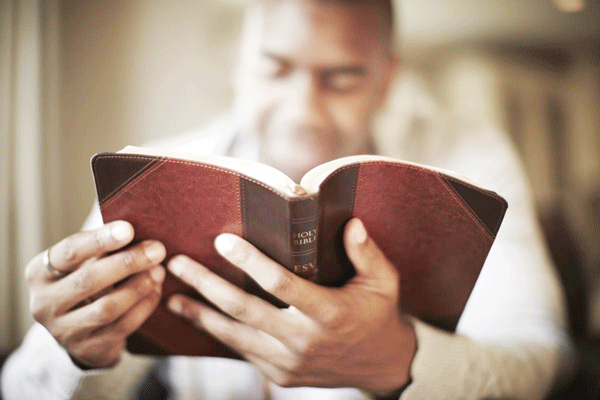
Alexander Maune
BEN Bag-Bag used to say of the Torah: Turn it and turn it again, for everything is in it. Pore over it, and wax gray and old over it. Stir not from it for you can have no better rule than it (Pirkei Avot: Ethics of the Fathers, 5:26).
The Talmud is one of the most challenging and perplexing religious texts in the world. Talmud is a comprehensive term for the Mishnah and Gemara as joined in the two compilations known as Babylonian Talmud/Talmud Bavli (6th Century) and Jerusalem Talmud (5th Century). The Talmud is the Jewish oral law.
The Mishna, originally an old oral tradition, was compiled and edited in written form about 1 800 years ago, while the Gemara, which consists mainly of commentaries on the Mishna, was completed approximately 1 500 years ago. The Talmud is principally concerned with halacha (Jewish law), but it also provides a detailed record of the beliefs of the Jewish people, their philosophy, traditions, culture, and folklore, that is, the aggadah (homiletics). The Talmud is a manual for life, and its lessons have been time-tested for centuries. The Talmud has been argued to be the Jewish secret for success.
Jews and the Talmud
Senor, D and Singer, S in their book titled: “Start-up nation: The story of Israel`s economic miracle,” argue that the Jewish religion is an open book. By “open book” they were referring to the Talmud and the corresponding attitude of questioning was built into Jewish religion, as well as into the national ethos of Israel. According to Amos Oz’s speech at the Israeli Presidential Conference in Jerusalem on May 14, 2008, Judaism and Israel have always cultivated “a culture of doubt and argument, an open-ended game of interpretations, counter-interpretations, reinterpretations, opposing interpretations. From the very beginning of the existence of the Jewish civilisation, it was recognised by its argumentativeness.”
To Unterman (1971), whoever has not observed two rabbis or scholars conducting a discussion on some subject never saw a mental game between two intellectual-artists played on the highest logical level. States sprang up and States vanished but the Jew has always preserved his Talmud and from it drew the strength to overcome all the tragedies of history.
The Talmud has always been a book solely for scholars and researchers. The Talmud has played a significant role in the life of the Jewish people. It embraces the creativeness of many hundreds of years. It is an efflorescence which has substantially helped to mould and form the Jews’ very essence.
- Chamisa under fire over US$120K donation
- Mavhunga puts DeMbare into Chibuku quarterfinals
- Pension funds bet on Cabora Bassa oilfields
- Councils defy govt fire tender directive
Keep Reading
Through the Talmud, the Bible became a practical religio-national guide to life, a life-giving lore which combines within itself God and man, heaven and earth, spirituality and materiality.
The Bible became an inseparable part of Jewish life. Religion was the great force able to sustain the Jew, and this was made possible because the Talmudic scholars took the long view to life.
The Sages of the Talmud virtually created the Jewish way of life, which sustained their integrity. A people without a unique way of life are an impossibility ethnically. In the very centre of the Jewish culture is the Bible, which has had the greatest influence on the political and intellectual development of the entire world.
The Talmud is the living Jewish power in the process of creativity, the national laboratory in which the Jewish intellectual creation has taken shape. Progress and civilisation without moral, ethical, and spiritual development, are valueless and even harmful.
The Jewish propensity to learn
In his book titled: “The Book of Delight and Other Papers,” Israel Abrahams (1912) states that in the year 1190, Judah ibn Tibbon, a famous Provencal Jew, who had migrated to southern France from Granada, wrote in Hebrew as follows to his son: “Avoid bad society: make thy books thy companions. Let thy bookcases and shelves be thy gardens and pleasure grounds. Pluck the fruit that grows therein; gather the roses, the spices, and the myrrh. If thy soul be satiate and weary, change from garden to garden, from furrow to furrow, and from scene to scene. Then shall thy desire renew itself, and thy soul be rich with manifold delight.”
Israel Gollancz argues: “How safely, we lay bare the poverty of human ignorance to books, without feeling any shame.” Then he goes on to describe books as those silent teachers who “instruct us without rods or stripes, without taunts or anger, without gifts or money; who are not asleep when we approach them, and do not deny us when we question them, who do not chide us when we err, or laugh at us if we are ignorant.”
To Ezekiel the Lord said: “Open thy mouth, and eat that which I give thee. And when I looked, a hand was put forth unto me, and, lo, a scroll of a book was therein. Then, I did eat it, and it was in my mouth as honey for sweetness.”
The Jewish people have continued to exist because of the fact that they have always been a people of students, of learners, and of scholars. As soon as they finished studying one thing, they began all over again.
The folk saying “Repeat over and over again” reveals in a flash the entire Jewish world ethos, which is based upon learning. The Jews have, however, maintained their faith, their books, and the people themselves. Only a people of scholars can conquer all its enemies.
An educated person is not one who has merely read many books superficially. An educated person is one who has read and studied the same books over and over again. It is not the number of books that one has read which is important, but the extent to which these books have entered his consciousness and become a part of him and he a part of them. This can only be achieved through deep study. Jews celebrate the conclusion of studying a book and not reading because reading by itself means very little.
The reason why a celebration is made at the conclusion of one’s study is starting all over again. The joy consists not only in having achieved, but in beginning a new achievement, in beginning the study of the book all over again. A Jewish community celebrates not in its rich men nor in its high officials, but in those few individuals sitting around and immersed in studying the Talmud. Unterman (1971) seems to have borrowed this idea from Teller (1966) who states that, social status was a major consideration (among the Jews), but the gauge was learning, not wealth. This is supported by the Jewish saying: “Sell all your possessions to marry the daughter of a scholar, or to marry your daughter to a scholar.” St Jerome (Hieronymus) reports that all Jewish homes had bulging bookcases.
The Hebrew word for argument is “pilpul” and stems from the word pepper. Indeed, the Talmudic arguments are as pungent and strong as pepper. Thus the argument continues until the assertion is indisputably established. Such a method of argumentation does not admit of dealing with a subject in a dilettante or superficial manner. A subject must be thoroughly fathomed and plumbed.
So, from the Talmud to Einstein, the Jewish people were always asking questions, truth was never finite. It never ended. There was an iterative process from Jewish communities around the world trying to find out what is the right thing, what is the true thing? And that questioning mind is something that is in the Jewish culture.
Until when is a person obligated to study Torah? Until the day he dies, as (Deuteronomy 4:9) states: “Lest you remove it from your heart, all the days of your life.”
Every Jewish man is obligated to study Torah, whether he is poor or rich, whether his body is healthy and whole or afflicted by difficulties, whether he is young or an old man whose strength has diminished he must establish a fixed time for Torah study during the day and at night, as (Joshua 1:8) commands: “You shall think about it day and night”.
This is one of the major strengths behind Israel`s success. Its intellectual capacity, which is compared to none in the world, was built through keenness and erudition.
In conclusion, the Talmud is still relevant today as it was more than 1 500 years ago. No book can provide the answers to the challenges facing the world today than the Talmud.
It is the soul of the Jewish people and is their success secret as noted by the Koreans and other nations who seek to understand why Jews are so successful as witnessed by the number of Nobel Prize winners as well as the number of companies listed on the New York Stock Exchange.
- Alexander Maune is a Talmudic scholar, researcher and consultant as well as a member of IoDZ. For comments mailto: [email protected]. He writes here in his personal capacity.











